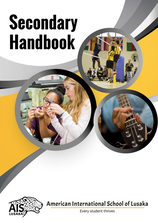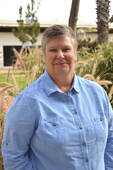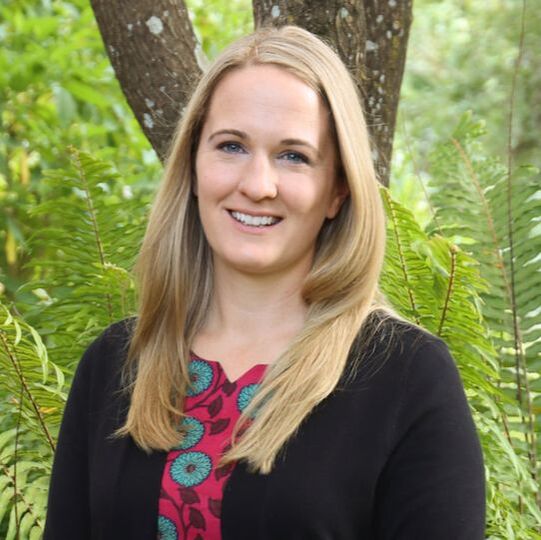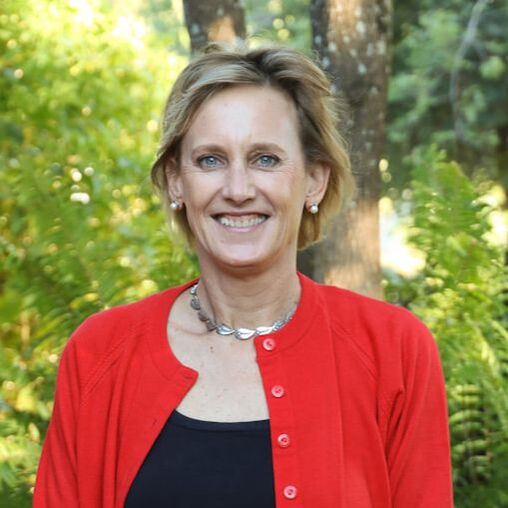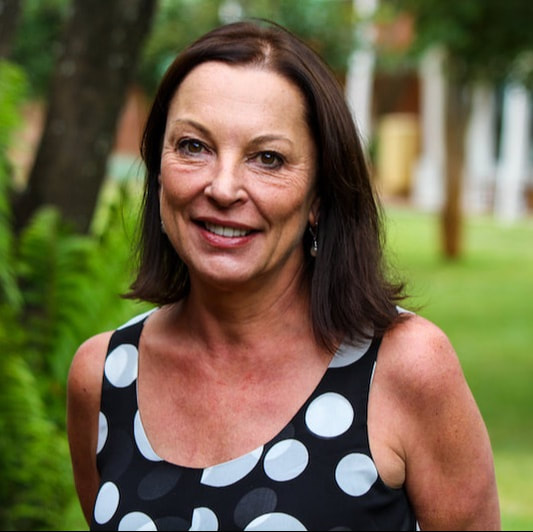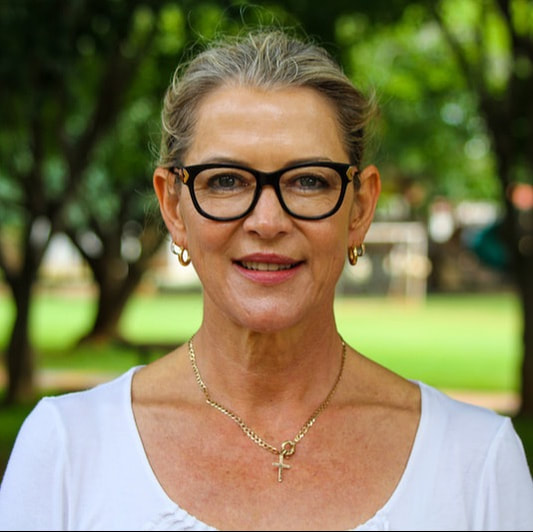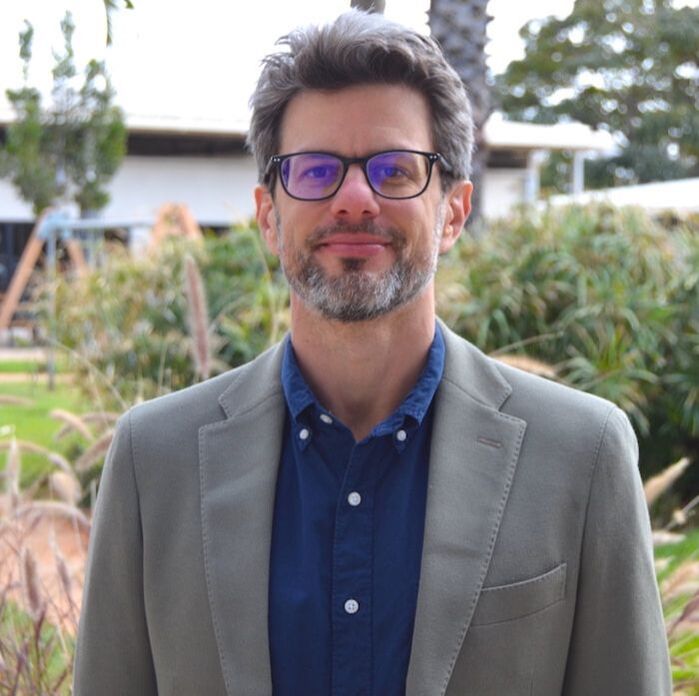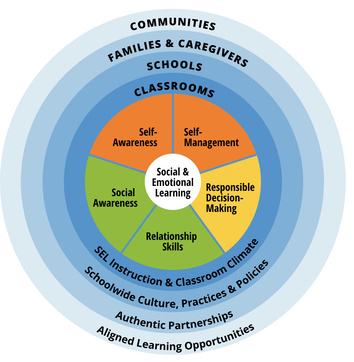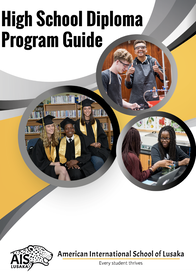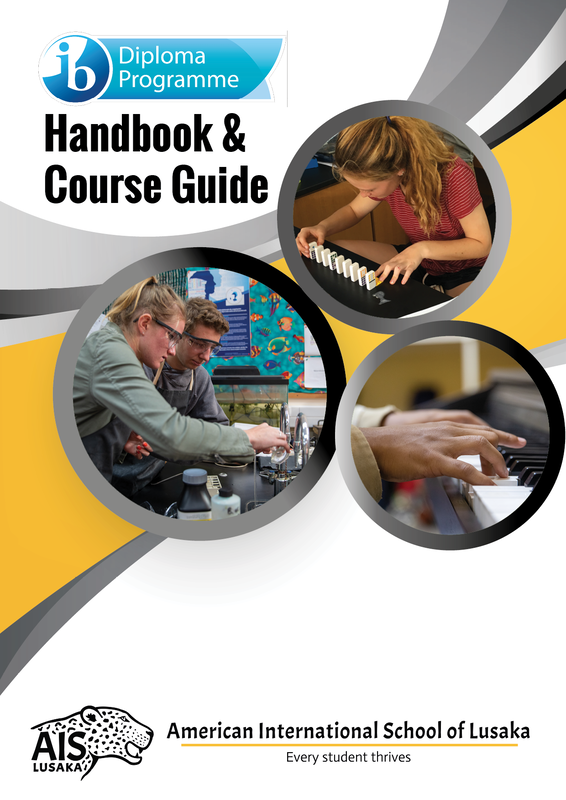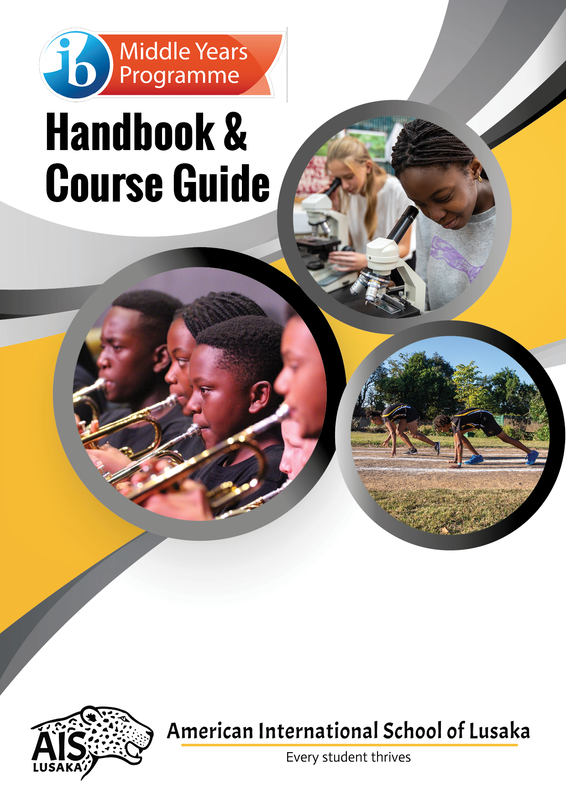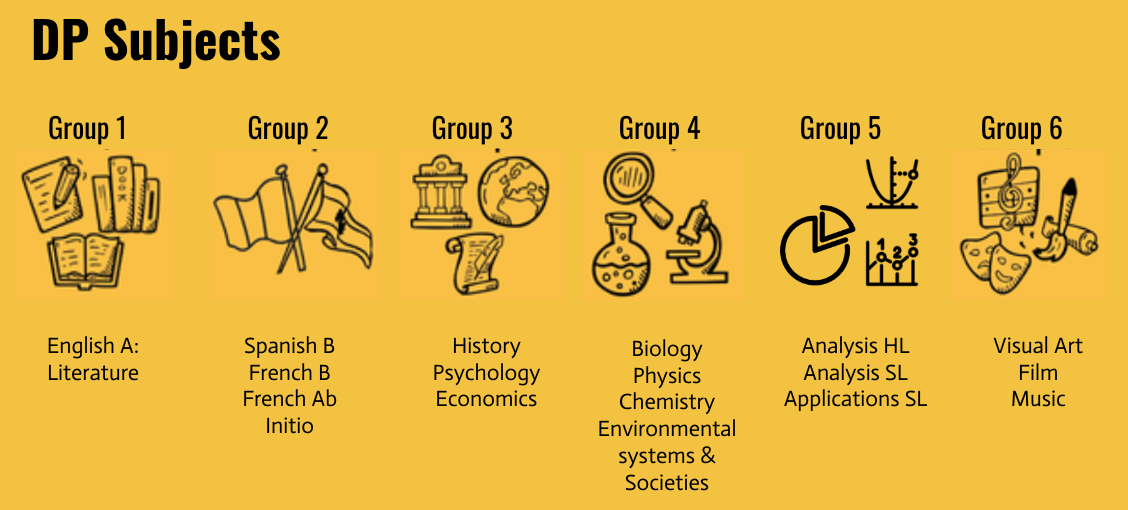In Focus...
Curriculum
Advisory Program
Assessment & Examinations
University & Career Guidance
Handbooks
Curriculum
Middle Years Programme
Diploma Programme
High School Diploma
Middle Years Programme
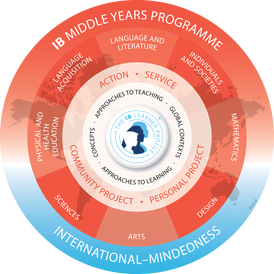
The Middle Years Programme serves as a framework for our curriculum here at AISL. You will find more specific information regarding subjects offered within the MYP Guides.
The IB Middle Years Programme
The MYP is designed for students aged 11 to 16. It provides a framework of learning which encourages students to become creative, critical and reflective thinkers. The MYP emphasises intellectual challenge, encouraging students to make connections between their studies in traditional subjects and to the real world. It fosters the development of skills for communication, intercultural understanding and global engagement, essential qualities for young people who are becoming global leaders. The MYP is flexible enough to accommodate the demands of most national or local curricula. It builds upon the knowledge, skills and attitudes developed in the IB Primary Years Programme (iBPYP) and prepares students to meet the academic challenges of the IB Diploma Programme (IBDP) and the IB Career-related Certificate (IBCC).
Over the five years of the programme, the MYP holistically seeks to address students’ intellectual, social, emotional and physical well-being. It provides students with opportunities to develop the knowledge, attributes, and skills they need in order to manage complexity and take responsible action for the future. It ensures breadth and depth of knowledge and understanding through the study of eight subject areas and requires the study of at least two languages to support students in understanding their own culture and that of others. The MYP empowers students to participate in service with the community and helps to prepare students for further education, the workplace, and a lifetime of learning.
The Curriculum
The eight subject groups are language and literature, language acquisition (French/Spanish), (as part of their multilingual profile), individuals and societies, sciences, mathematics, arts, physical and health education and design. Learning is inquiry based, conceptual and aligned with global contexts for meaningful learning.
Personal project
In Grade 10, their fifth and final year of the MYP, students choose an independent Personal Project to demonstrate their skills and understanding of the programme. The Personal Project provides the opportunity for students to explore an issue or idea they are passionate about, learn a new skill or knowledge and develop a product .
The aims of the MYP projects are to encourage and enable students to:
• participate in a sustained, self-directed inquiry within a global context
• generate creative new insights and develop deeper understandings through in-depth investigation
• demonstrate the skills, attitudes and knowledge required to complete a project over an extended
period of time
• communicate effectively in a variety of situations
• demonstrate responsible action through, or as a result of, learning
• appreciate the process of learning and take pride in their accomplishments.
Projects guide. May 2014 (updated September 2017).
Research from the Education University of Hongkong found personal project scores in the MYP to be a meaningful predictor of DP examination and extended essay scores. Additionally, personal project participants attained higher scores on DP examinations and the extended essay than their DP peers who did not participate in the personal project. Research here.
For further information about the programme, please access the IBO directly.
The IB Middle Years Programme
The MYP is designed for students aged 11 to 16. It provides a framework of learning which encourages students to become creative, critical and reflective thinkers. The MYP emphasises intellectual challenge, encouraging students to make connections between their studies in traditional subjects and to the real world. It fosters the development of skills for communication, intercultural understanding and global engagement, essential qualities for young people who are becoming global leaders. The MYP is flexible enough to accommodate the demands of most national or local curricula. It builds upon the knowledge, skills and attitudes developed in the IB Primary Years Programme (iBPYP) and prepares students to meet the academic challenges of the IB Diploma Programme (IBDP) and the IB Career-related Certificate (IBCC).
Over the five years of the programme, the MYP holistically seeks to address students’ intellectual, social, emotional and physical well-being. It provides students with opportunities to develop the knowledge, attributes, and skills they need in order to manage complexity and take responsible action for the future. It ensures breadth and depth of knowledge and understanding through the study of eight subject areas and requires the study of at least two languages to support students in understanding their own culture and that of others. The MYP empowers students to participate in service with the community and helps to prepare students for further education, the workplace, and a lifetime of learning.
The Curriculum
The eight subject groups are language and literature, language acquisition (French/Spanish), (as part of their multilingual profile), individuals and societies, sciences, mathematics, arts, physical and health education and design. Learning is inquiry based, conceptual and aligned with global contexts for meaningful learning.
Personal project
In Grade 10, their fifth and final year of the MYP, students choose an independent Personal Project to demonstrate their skills and understanding of the programme. The Personal Project provides the opportunity for students to explore an issue or idea they are passionate about, learn a new skill or knowledge and develop a product .
The aims of the MYP projects are to encourage and enable students to:
• participate in a sustained, self-directed inquiry within a global context
• generate creative new insights and develop deeper understandings through in-depth investigation
• demonstrate the skills, attitudes and knowledge required to complete a project over an extended
period of time
• communicate effectively in a variety of situations
• demonstrate responsible action through, or as a result of, learning
• appreciate the process of learning and take pride in their accomplishments.
Projects guide. May 2014 (updated September 2017).
Research from the Education University of Hongkong found personal project scores in the MYP to be a meaningful predictor of DP examination and extended essay scores. Additionally, personal project participants attained higher scores on DP examinations and the extended essay than their DP peers who did not participate in the personal project. Research here.
For further information about the programme, please access the IBO directly.
Diploma Programme
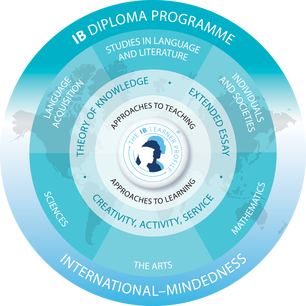
AISThe Diploma Programme: preparing students for success in higher education and life in a global society.
The IB Diploma Programme (DP) is an academically challenging and balanced program of education with final examinations that prepares students aged 16 to 19 for success at university and life beyond. It has been designed to address the intellectual, social, emotional and physical well-being of students. The programme has gained recognition and respect from the world’s leading universities.
The Diploma Programme prepares students for effective participation in a rapidly evolving and increasingly global society as they:
The curriculum
IB Diploma Programme students must choose one subject from each of the five subject groups, ensuring breadth of knowledge and understanding in their best language, additional language(s), the social sciences, the experimental sciences and mathematics. For their sixth subject, students may choose either an arts subject, or a second subject from groups 1 to 5. Detailed information about AISL's DP subjects can be found in the DP Curricula/Syllabi Handbook.
The Diploma Programme Core
The Extended Essay asks students to engage in independent research through an in-depth study of a question relating to one of the DP subjects they are studying. The world studies extended essay option allows students to focus on a topic of global significance which they examine through the lens of at least two DP subjects.
Theory of Knowledge develops a coherent approach to learning that unifies the academic disciplines. In this course on critical thinking, students inquire into the nature of knowing and deepen their understanding of knowledge as a human construction.
Creativity, Activity, Service (CAS) involves students in a range of activities alongside their academic studies. "Creativity" encourages students to engage in the arts and creative thinking. "Activity" seeks to develop a healthy lifestyle through physical activity. "Service" with the community offers a vehicle for a new learning with academic value. These three strands of CAS enhance students’ personal and interpersonal development through experiential learning and enable journeys of self-discovery.
The IB Diploma Programme (DP) is an academically challenging and balanced program of education with final examinations that prepares students aged 16 to 19 for success at university and life beyond. It has been designed to address the intellectual, social, emotional and physical well-being of students. The programme has gained recognition and respect from the world’s leading universities.
The Diploma Programme prepares students for effective participation in a rapidly evolving and increasingly global society as they:
- develop physically, intellectually, emotionally and ethically
- acquire breadth and depth of knowledge and understanding, studying courses from 6 subject groups
- develop the skills and a positive attitude toward learning that will prepare them for higher education
- study at least two languages and increase understanding of cultures, including their own
- make connections across traditional academic disciplines and explore the nature of knowledge through the program’s unique theory of knowledge course
- undertake in-depth research into an area of interest through the lens of one or more academic disciplines in the extended essay
- enhance their personal and interpersonal development through creativity, action and service
The curriculum
IB Diploma Programme students must choose one subject from each of the five subject groups, ensuring breadth of knowledge and understanding in their best language, additional language(s), the social sciences, the experimental sciences and mathematics. For their sixth subject, students may choose either an arts subject, or a second subject from groups 1 to 5. Detailed information about AISL's DP subjects can be found in the DP Curricula/Syllabi Handbook.
The Diploma Programme Core
The Extended Essay asks students to engage in independent research through an in-depth study of a question relating to one of the DP subjects they are studying. The world studies extended essay option allows students to focus on a topic of global significance which they examine through the lens of at least two DP subjects.
Theory of Knowledge develops a coherent approach to learning that unifies the academic disciplines. In this course on critical thinking, students inquire into the nature of knowing and deepen their understanding of knowledge as a human construction.
Creativity, Activity, Service (CAS) involves students in a range of activities alongside their academic studies. "Creativity" encourages students to engage in the arts and creative thinking. "Activity" seeks to develop a healthy lifestyle through physical activity. "Service" with the community offers a vehicle for a new learning with academic value. These three strands of CAS enhance students’ personal and interpersonal development through experiential learning and enable journeys of self-discovery.
High School Diploma
To obtain the AISL High School Diploma, students must successfully complete a balanced educational high school course of study, Grades 9 to 12, and must attend AISL for at least the entire Grade 12 year and fulfil the following requirements:
- Complete CAS (Creativity, Activity, Service) in the final two years (or pro-rata for students transferring in their senior year).
- Obtain a minimum of 23 credits over the four years of high school.
Students transferring from other schools will be awarded credits after their previous school(s) record has been evaluated.
Every effort will be made to accommodate the fact that students can have very different educational backgrounds and/or future plans.
Every effort will be made to accommodate the fact that students can have very different educational backgrounds and/or future plans.
| high_school_profile_2019-2020_final.pdf | |
| File Size: | 1902 kb |
| File Type: | |
Advisory Program
At AISL, we believe that every student deserves personalized support and guidance to thrive academically, socially, and emotionally so that students can meet our Vision of Every Student Thrives. Therefore, our Advisory program aims to foster a culture of care and support, where students can build positive relationships with their peers and advisors, and develop essential life skills and attributes that will enable them to become responsible and contributing global citizens. We are committed to ensuring that our Advisory program creates a safe and inclusive environment, where students feel valued, heard, and empowered to reach their full potential.
|
Our MYP Advisory program is developed in partnership with each Grade Level team to ensure that it is relevant and meets the needs of our students. The CASEL framework (image to the right) is used alongside the Keeping Safe: Child Protection Curriculum and our AISL developed PSE (Personal & Social Education) curriculum to deliver responsive and comprehensive learning engagements during a 45 minute period Monday - Thursday. Through student feedback, we have also recently developed an opportunity for student-led activities called Flex Time. We have these activity blocks four times a year for 5 weeks, where students propose activities and are mentored by an Advisor during the block. Some of these have included: Jazz Band, Volleyball, Badminton, Capture the Flag, Visual Art, Choir, Board Games, First Aid, and Basketball.
|
Assessment & Examinations
Overview
Standardized Testing
Personal Project
Testing Center
Overview
Assessment is the gathering and analyzing of information about student progress and performance as well as program effectiveness. It identifies what students know, understand, and can do at different stages in the learning process. Assessment is integral and crucial to the curriculum and to all teaching and learning. It is the means by which we analyze student learning and the effectiveness of planning, teaching and learning.
At AISL, effective assessment:
AISL is committed to the process of assessment in order to:
IB assessment standards are consistent around the world. In order to maintain the rigor for which the IB is renowned, the assessment model is criterion-related. Teachers structure varied and valid assessment tasks so that students can demonstrate achievement according to objectives defined by the IB. Tasks are assessed against established criteria, not against the work of other students.
At AISL, effective assessment:
- Improves and encourages student learning by providing effective feedback on the learning process and outcomes.
- Informs planning and teaching.
- Is a tool to collect evidence of student understanding, knowledge and skills.
- Is a continuous, on-going process.
- Is directly related to learning outcomes/curriculum standards.
- Has clear criteria that are known and understood in advance.
- Involves frequent opportunities for students to be assessed in authentic contexts.
- Is rigorous and relevant.
- Engages students in reflection on their learning.
- Is differentiated by learning needs, for example level of English, cultural background and learning style.
- Provides opportunity for peer feedback and self-reflection.
AISL is committed to the process of assessment in order to:
- Enhance the learning of the students.
- Monitor the progress of individual student learning and achievement.
- Determine the effectiveness of teaching.
- Inform curriculum review.
- Help evaluate suitability of programs and courses.
- Inform others of student progress and performance, including students, teachers, parents, other schools, and colleges/universities.
IB assessment standards are consistent around the world. In order to maintain the rigor for which the IB is renowned, the assessment model is criterion-related. Teachers structure varied and valid assessment tasks so that students can demonstrate achievement according to objectives defined by the IB. Tasks are assessed against established criteria, not against the work of other students.
Additional Assessment Practices MYP Grades 6 through to 10:
The assessment of students within the MYP takes place on a continuous basis in relation to a number of skills defined by the IB. The award of final grades at the end of Grade 10 will be based on this continuous assessment carried out by the school.
- Assessment is a continuous process and is designed to address the MYP objectives in each of the eight subject groups and the Personal Project, according to the criterion-related approach.
- Grades 6-10 use or modify the IB’s published assessment criteria, as appropriate.
- Assessment criteria in rubric format are presented to the students with the task instructions prior to starting the task.
- Judgments of each student’s performance against the assessment criteria are recorded.
- Mid-semester, end-of-semester, and end-of-year subject-specific levels of achievement are not weighted/averaged, but reflect the level of performance of the student at the time of reporting, in terms of the level descriptor, using the ‘best-fit’ approach.
- Internal standardization work within subject groups takes place at regular intervals.
The assessment of students within the MYP takes place on a continuous basis in relation to a number of skills defined by the IB. The award of final grades at the end of Grade 10 will be based on this continuous assessment carried out by the school.
Standardized Testing
Measure of Academic Progress (MAP) Test
Standardized tests are designed to give a common measure of students' performance. Because large numbers of students take the same test, they give educators a common yardstick or standard of measure. AISL uses standardized tests results to:
Standardized tests are designed to give a common measure of students' performance. Because large numbers of students take the same test, they give educators a common yardstick or standard of measure. AISL uses standardized tests results to:
- Acquire a picture or snapshot of the skills and abilities of an individual student or a group of students.
- Inform curriculum and instruction.
- Evaluate the effectiveness of programs.
- Measure how well our students perform in relation to students who attend other like schools or other students around the world.
Personal Project
Personal Project
Testing Center
Please view the embedded doc below (also accessible here) for more information.
University & Career Guidance
College and University Guidance Counseling Program
AISL has a High School and College Guidance Counselor who leads the school's university and career guidance program. In Grade 10, students attend a retreat and are interviewed and advised by the Counselor and the IB Diploma Coordinator on choosing the appropriate IB or High School program and subjects to pursue in Grades 11 and 12. The Counselor meets with all students and their parents to guide them through the university application process or to explore other post-secondary opportunities. Meetings generally begin to take place from Grade 10 onwards. Some university information is presented in a group format during parent presentations, in Advisory classes, and through university representative in-person or virtual visits.
Contact the College Counselor: Julie Ann Baldry - [email protected]
AISL has a High School and College Guidance Counselor who leads the school's university and career guidance program. In Grade 10, students attend a retreat and are interviewed and advised by the Counselor and the IB Diploma Coordinator on choosing the appropriate IB or High School program and subjects to pursue in Grades 11 and 12. The Counselor meets with all students and their parents to guide them through the university application process or to explore other post-secondary opportunities. Meetings generally begin to take place from Grade 10 onwards. Some university information is presented in a group format during parent presentations, in Advisory classes, and through university representative in-person or virtual visits.
Contact the College Counselor: Julie Ann Baldry - [email protected]
100%100% of students
who applied for 2023 entry are attending degree-awarding college |
3434: average IB Diploma points-total score*
|
96%96% of the Class of 2023 accepted to their first choice university
|
44/4544/45: historically highest IB Diploma score by AISL student
|
50%50% of 2023 applicants awarded scholarships to attend university
|
$2.3m$2.3m of scholarship awards offered to students from the Class of 2023
|
*AISL has a non-selective IB Programme and does not exclude scores
|
More specifically, AISL provides the following university preparation and career guidance support:
|
Click here to download the AISL High School Profile
|
- Grade 11 and 12 program and course selection (with the IB DP Coordinator)
- Introduction to international university admissions processes
- Parent information sessions concerning international university admissions processes and transitioning to university
- Career assessment
- PSAT 8/9, PSAT 9/10, PSAT/NMSQT, SAT, and ACT administration
- Cambridge and Oxford Assessment Tests for university applications
- Selection of 'good fit' universities and colleges for individual students
- Personality & strengths inventories
- University exploration
- Scholarship search
- Coordinating university admission representative visits to AISL campus
- Personal statement / Essay writing workshops
- Curriculum Vitae (Resumé) and Letter of Intent writing advice
- Assistance with obtaining letters of recommendation
- One-on-one parent meetings to discuss the application process
- One-on-one student meetings throughout the exploration and application process
- Transcript requests for university applications
- Assistance with financial aid applications
- Mailing or uploading application materials at specified times
- College test requirement advice - check out the College Admission Test Schedule here.
- Student study visa advice
- Transition to university activities and information
- Assistance with GAP year decisions
Handbooks
Secondary News & Events
|
|
|

